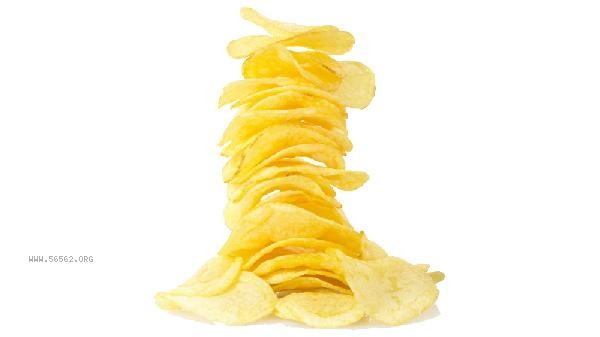The reason why potato chips are not crispy after being stored for a long time is mainly related to factors such as air oxidation, moisture absorption, and oil rancidity. The main reasons for the loss of brittleness in potato chips are production process defects, poor packaging sealing, improper storage environment, low oil stability, starch retrogradation, etc.

1. Production process defects
Improper control of moisture content in potato chips during frying can affect the final crispness. If the initial dehydration is not thorough, residual moisture will gradually migrate to the surface. Some manufacturers use low-temperature frying technology to save costs, resulting in insufficient starch gelatinization. This unstable structure of potato chips is more prone to moisture absorption and softening. The use of advanced technologies such as vacuum frying or microwave drying can significantly improve the shelf life of products.
2. Poor packaging sealing
Ordinary plastic packaging has limited barrier properties against water vapor and oxygen. When there are minor damages or loose seals on the packaging bag, water molecules in the environment will quickly seep in. Nitrogen filled packaging can effectively delay the oxidation process, but most affordable products still use ordinary aluminum plated film packaging. Failure to seal the potato chips in a timely manner after opening is also a common cause of moisture in potato chips.
3. Improper storage environment
High temperature and high humidity environment can accelerate the deterioration of potato chip quality. When the relative humidity exceeds 60%, the surface of potato chips will quickly adsorb water molecules and break the brittle structure. Direct sunlight can also trigger the photo oxidation reaction of oil, producing a halal flavor. It is recommended to store potato chips in a cool and dry place, and it is best to transfer them to a sealed container for storage after opening.

4. Low oil stability
Potato chips usually have an oil content of around 35%, and oil oxidation can cause the texture to become tough. Plant oils with high levels of unsaturated fatty acids are more prone to rancidity, producing free fatty acids that worsen the taste. Adding antioxidants such as vitamin E can delay this process, but cannot completely prevent oil deterioration.
5. Starch retrogradation
During the frying process, the gelatinized starch will gradually retrogradation during storage, and the molecules will rearrange to form a dense structure. This aging phenomenon leads to an increase in hardness but a decrease in brittleness of potato chips. Adding an appropriate amount of emulsifier can inhibit starch retrogradation, and short-term microwave heating can temporarily restore some brittleness in households. To maintain the best taste of potato chips, it is recommended to choose nitrogen filled packaging products and store them in a cool place. Try to consume within 3 days after opening, and use food desiccants to assist in moisture prevention. Occasional consumption of softened potato chips does not affect safety, but oxidized fats may stimulate the gastrointestinal tract. When making homemade potato chips, the frying time can be appropriately increased, and they should be sealed and stored immediately after cooling. Pay attention to controlling intake, high oil and high salt snacks should not be included as a part of daily diet.










Comments (0)
Leave a Comment
No comments yet
Be the first to share your thoughts!